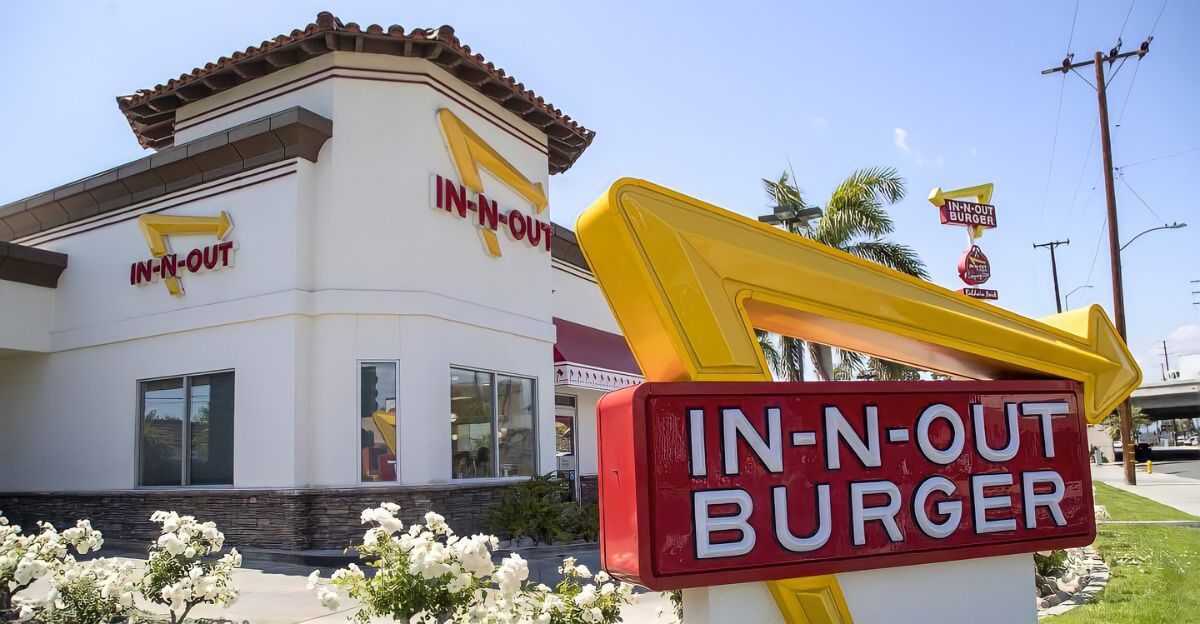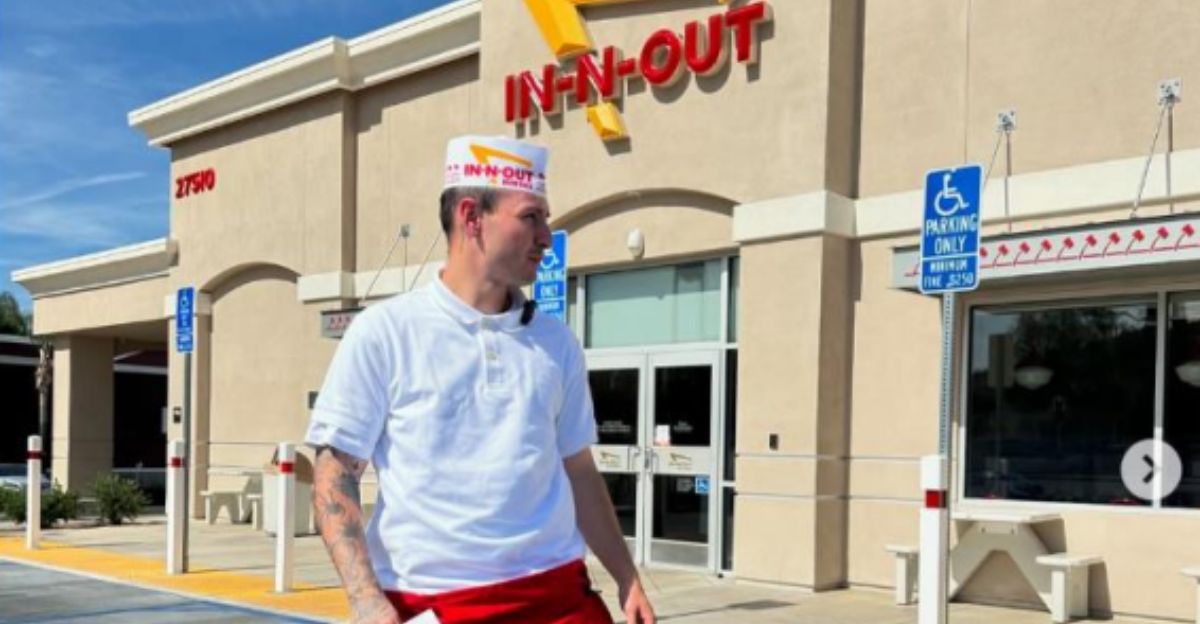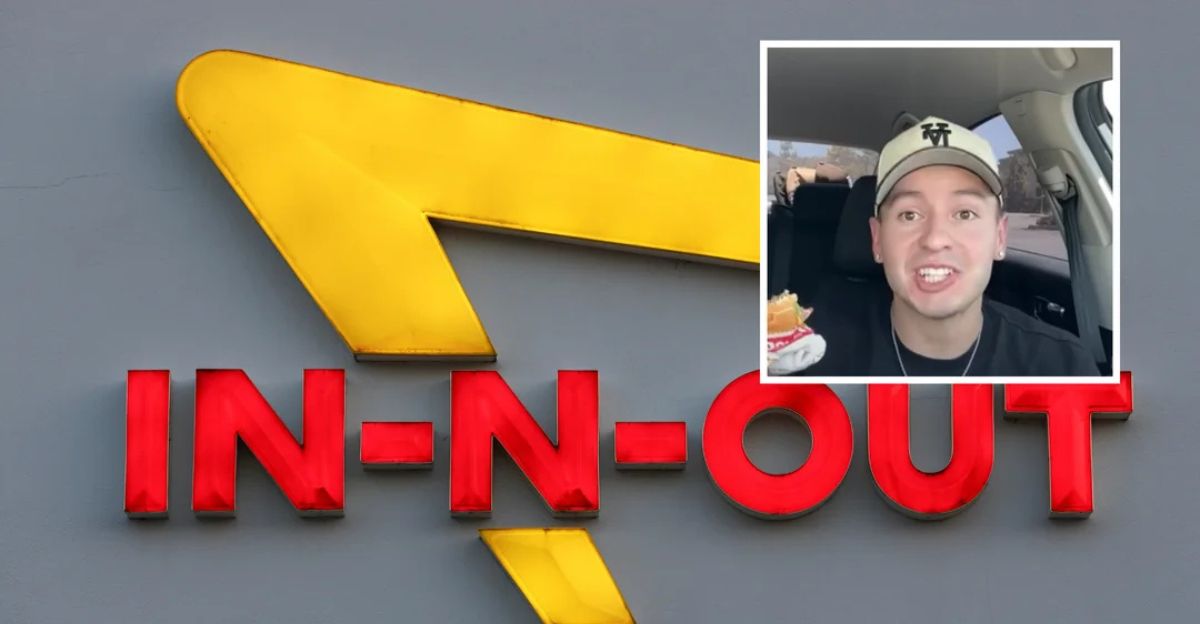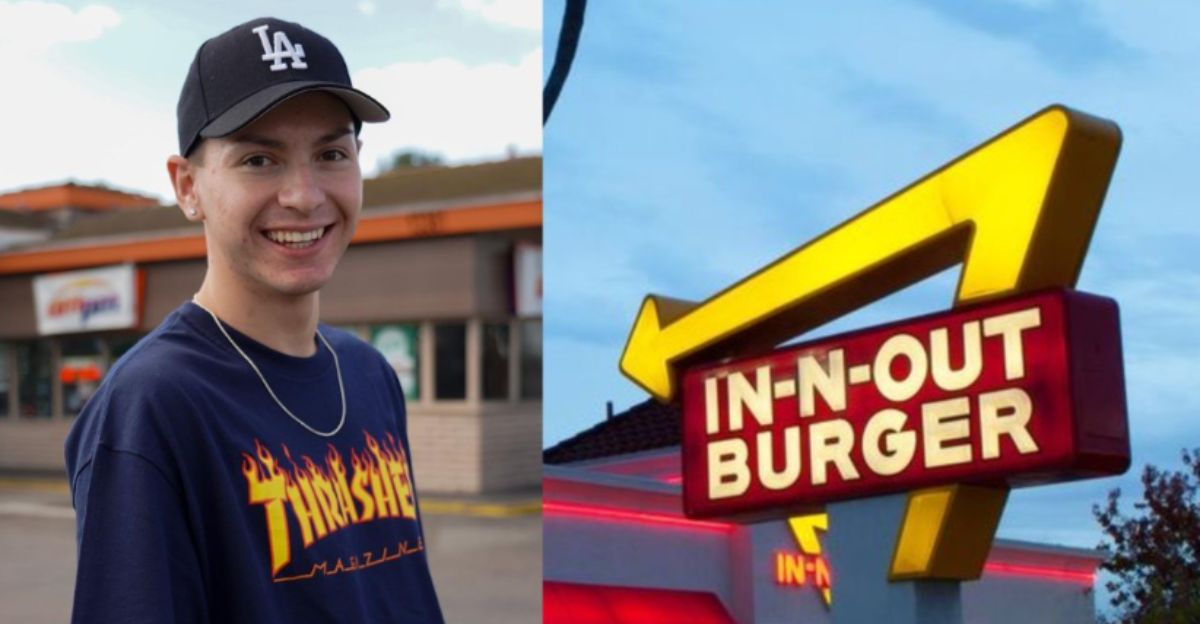
In a bizarre turn of events, Southern California burger giant In-N-Out has filed a federal lawsuit against YouTuber Bryan Arnett, who impersonated an In-N-Out employee in a prank video.
Arnett, known for his controversial content, donned a fake uniform and interacted with unsuspecting customers at a closed In-N-Out location, leading to serious legal consequences for the prankster.
The Prank Video Details

The prank video, posted on April 25 and later made private, featured Arnett in the chain’s signature red apron, white shirt, and paper hat.
On Easter Sunday, when all In-N-Out locations were closed, he masqueraded as a fast-food drive-thru worker at what appeared to be a Glendale outlet.
During the interactions, he offered false menu items, took bogus orders, and made inappropriate, lewd comments to customers, such as asking if they were interested in watching his wife with other men.
Escalating the Shock Factor

The antics of Arnett went further, with staged scenarios involving an accomplice, in which he pretended to find a cockroach in a meal and joked about condoms falling into orders.
He even falsely claimed the restaurant had a cockroach problem and that employees put their feet in the lettuce served to customers. These shocking fabrications were meant to shock and unsettle his online audiences and customers alike.
History of Pranks on In-N-Out

This was not Arnett’s first run-in with In-N-Out. He previously posted videos of being kicked out for attempting to pay with pennies and for hanging up a fake employee-of-the-month plaque with a photo of himself inside the restaurant.
These repeated pranks have already drawn management’s attention before the latest stunt led to legal action.
The Legal Response from In-N-Out

On June 20, In-N-Out filed a federal lawsuit accusing Arnett of trademark infringement, business defamation, and falsely representing the company.
The suit describes his remarks as “lewd, unsettling and bizarre,” tarnishing the brand’s family-friendly reputation. The company also sent Arnett a cease-and-desist letter in early May, which he promptly ignored.
Potential Consequences for Arnett

If the lawsuit succeeds, Arnett would be banned for life from all In-N-Out restaurant locations and could be liable for financial damages.
The company is also seeking to recover any profits that Arnett made from the videos and demands the removal of all related online content. This lawsuit demonstrates In-N-Out’s commitment to protecting its brand image and customer goodwill.
Arnett’s Public Reaction

In response to the lawsuit, Arnett posted another video, now private, where he appeared unfazed by the legal threat.
He admitted that he knew he was “teetering the line” and “pushing his luck” but expressed no real worry about the lawsuit, stating, “Whatever’s gonna happen is gonna happen.” His defiant attitude highlights the tension between online prank culture and corporate legal boundaries.
In-N-Out’s Brand Protection Strategy

In-N-Out is known for fiercely protecting its wholesome, family-friendly brand. The company has been known for taking legal action against those who infringe on its trademarks and reputation.
This lawsuit follows a similar case in 2018 against a YouTuber for comparable pranks, reflecting the chain’s ongoing vigilance against brand damage.
Broader Implications for YouTube Pranksters

This lawsuit signals a warning to content creators who engage in deceptive or harmful pranks involving established brands.
The legal risks for impersonation, defamation, and trademark infringement are increasingly enforced, especially when pranks cross into offensive or misleading territory. The case may influence YouTubers to reconsider the boundaries of their content.
The Clash of Online Entertainment and Corporate Law

The In-N-Out lawsuit against Bryan Arnett highlights the escalating tension between viral prank culture and corporate legal protections.
Yes, pranks may attract viewers, but they can also invite serious legal repercussions when they harm brand reputation or mislead consumers.
This case will be closely watched as a precedent for how far online entertainers can push the envelope without facing lawsuits.
